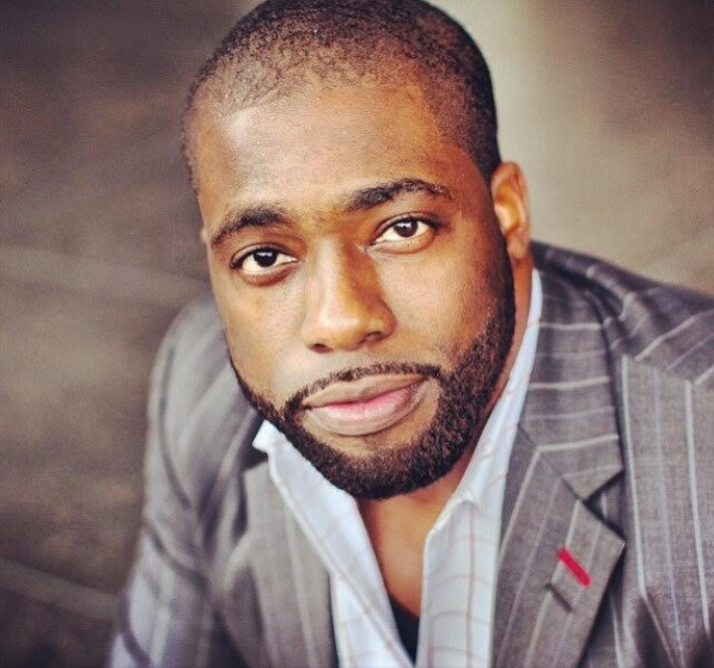
Brian Banks was in high school and on his way to accept a football scholarship from the University of Southern California when his dreams were dashed as he was falsely convicted of kidnapping and raping a classmate. Banks served more than five years in prison and another five years monitored as a registered sex offender. In 2011, his accuser was recorded admitting to fabricating the charges. With the help of the California Innocence Project, Banks successfully cleared his name, regained his reputation, and earned tryouts with several NFL football teams before signing with the Atlanta Falcons. Today, Banks is an activist working to prevent wrongful convictions, a nationally recognized motivational speaker, life coach, and the subject of the film, Brian Banks, released in 2019.
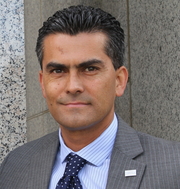 Franky Carrillo was raised in Lynwood, California, a small suburb of Los Angeles. When he was 16 years old, Carrillo was charged with a murder he did not commit. Carrillo was tried as an adult and found guilty, despite his steadfast assertion that he was innocent. He was sentenced to live out the remainder of his life in prison. During his incarceration, Carrillo never lost hope in himself, the judicial system or his faith. Empowered by these personal convictions, he worked to prove his innocence. Carrillo’s efforts finally came to fruition when he was exonerated on March 16, 2011. After a long period of facing the dark realities of injustice, he re-emerged as a champion of equality and justice. In 2016, Carrillo graduated from Loyola Marymount University. He is married and the proud father of two sons.
Franky Carrillo was raised in Lynwood, California, a small suburb of Los Angeles. When he was 16 years old, Carrillo was charged with a murder he did not commit. Carrillo was tried as an adult and found guilty, despite his steadfast assertion that he was innocent. He was sentenced to live out the remainder of his life in prison. During his incarceration, Carrillo never lost hope in himself, the judicial system or his faith. Empowered by these personal convictions, he worked to prove his innocence. Carrillo’s efforts finally came to fruition when he was exonerated on March 16, 2011. After a long period of facing the dark realities of injustice, he re-emerged as a champion of equality and justice. In 2016, Carrillo graduated from Loyola Marymount University. He is married and the proud father of two sons.
 Denise Foderaro is a longtime advocate for justice and a researcher for the Registry. A University of Pennsylvania alumna, she played a central role in the creation of the Quattrone Center for the Fair Administration of Justice at the University of Pennsylvania Law School, which opened in 2013. Foderaro is the recipient, among other honors, of leadership awards from the Northern California Innocence Project and Death Penalty Focus, and the 2013 Hero of Justice Award from the Pennsylvania Innocence Project. She attributes her passion and persistence to her training as an occupational therapist and her experience as the wife of an innocent, wrongfully convicted defendant who was completely cleared after a successful appeal.
Denise Foderaro is a longtime advocate for justice and a researcher for the Registry. A University of Pennsylvania alumna, she played a central role in the creation of the Quattrone Center for the Fair Administration of Justice at the University of Pennsylvania Law School, which opened in 2013. Foderaro is the recipient, among other honors, of leadership awards from the Northern California Innocence Project and Death Penalty Focus, and the 2013 Hero of Justice Award from the Pennsylvania Innocence Project. She attributes her passion and persistence to her training as an occupational therapist and her experience as the wife of an innocent, wrongfully convicted defendant who was completely cleared after a successful appeal.
 Brandon L. Garrett is the L. Neil Williams, Jr. Professor of Law at Duke University School of Law and the director of the Wilson Center for Science and Justice at Duke Law. His teaching and research has focused on criminal procedure, DNA exonerations, habeas corpus, scientific evidence, organizational prosecutions, and constitutional law. His recent publications include a federal habeas corpus casebook and Convicting the Innocent: Where Criminal Prosecutions Go Wrong (Harvard University Press). His newest book, entitled Too Big to Jail: How Prosecutors Compromise with Corporations, was published in 2014. Garrett attended Columbia Law School, where he was an articles editor of the Columbia Law Review and a Kent Scholar.
Brandon L. Garrett is the L. Neil Williams, Jr. Professor of Law at Duke University School of Law and the director of the Wilson Center for Science and Justice at Duke Law. His teaching and research has focused on criminal procedure, DNA exonerations, habeas corpus, scientific evidence, organizational prosecutions, and constitutional law. His recent publications include a federal habeas corpus casebook and Convicting the Innocent: Where Criminal Prosecutions Go Wrong (Harvard University Press). His newest book, entitled Too Big to Jail: How Prosecutors Compromise with Corporations, was published in 2014. Garrett attended Columbia Law School, where he was an articles editor of the Columbia Law Review and a Kent Scholar.
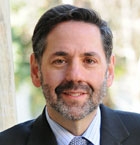
Lawrence C. Marshall, Professor of Law at Stanford Law School, is an internationally known authority on criminal law, wrongful convictions and the death penalty. In 1998 he co-founded the Center on Wrongful Convictions at the Northwestern University School of Law, and was its Legal Director until he moved to Stanford in 2005, where he served as Associate Dean of Clinical Education and David and Stephanie Mills Director of the Mills Legal Clinic from 2005 to 2013. Professor Marshall clerked for Justice John Paul Stevens of the United States Supreme Court and for Judge Patricia M. Wald of the United States Court of Appeals for the District of Columbia. He is of counsel to the law firm of Kirkland & Ellis and was previously at Mayer, Brown & Platt.
 Jim Petro, former Ohio Attorney General, has litigated cases in venues from Mayor's Court to the United States Supreme Court. Before serving as Ohio Attorney General, he was elected State Representative, Cuyahoga County Commissioner, and Ohio Auditor of State. He was the nation's first state attorney general to intervene on behalf of an Innocence Project client. He later became a pro bono lawyer for the Ohio Innocence Project (OIP) and worked to help pass the state's criminal justice reform law in 2010. Petro received the 2010 Innocence Network Champion of Justice Award.
Jim Petro, former Ohio Attorney General, has litigated cases in venues from Mayor's Court to the United States Supreme Court. Before serving as Ohio Attorney General, he was elected State Representative, Cuyahoga County Commissioner, and Ohio Auditor of State. He was the nation's first state attorney general to intervene on behalf of an Innocence Project client. He later became a pro bono lawyer for the Ohio Innocence Project (OIP) and worked to help pass the state's criminal justice reform law in 2010. Petro received the 2010 Innocence Network Champion of Justice Award.
 Nancy Petro, a writer, co-authored with Jim Petro False Justice: Eight Myths that Convict the Innocent (Kaplan 2011; Peking University Press 2012), which earned a 2011 Constitutional Commentary Award (The Constitution Project) and the 2012 Media Award (Northern California Innocence Project). After a business career, she has focused on criminal justice advocacy, authoring or co-authoring articles for publications such as In Brief (Case Western Reserve School of Law); the Ohio Innocence Project's Annual Review; and Wrongful Convictions & Miscarriages of Justice (Routledge 2013, edited by C. Ronald Huff and Martin Killias).
Nancy Petro, a writer, co-authored with Jim Petro False Justice: Eight Myths that Convict the Innocent (Kaplan 2011; Peking University Press 2012), which earned a 2011 Constitutional Commentary Award (The Constitution Project) and the 2012 Media Award (Northern California Innocence Project). After a business career, she has focused on criminal justice advocacy, authoring or co-authoring articles for publications such as In Brief (Case Western Reserve School of Law); the Ohio Innocence Project's Annual Review; and Wrongful Convictions & Miscarriages of Justice (Routledge 2013, edited by C. Ronald Huff and Martin Killias).
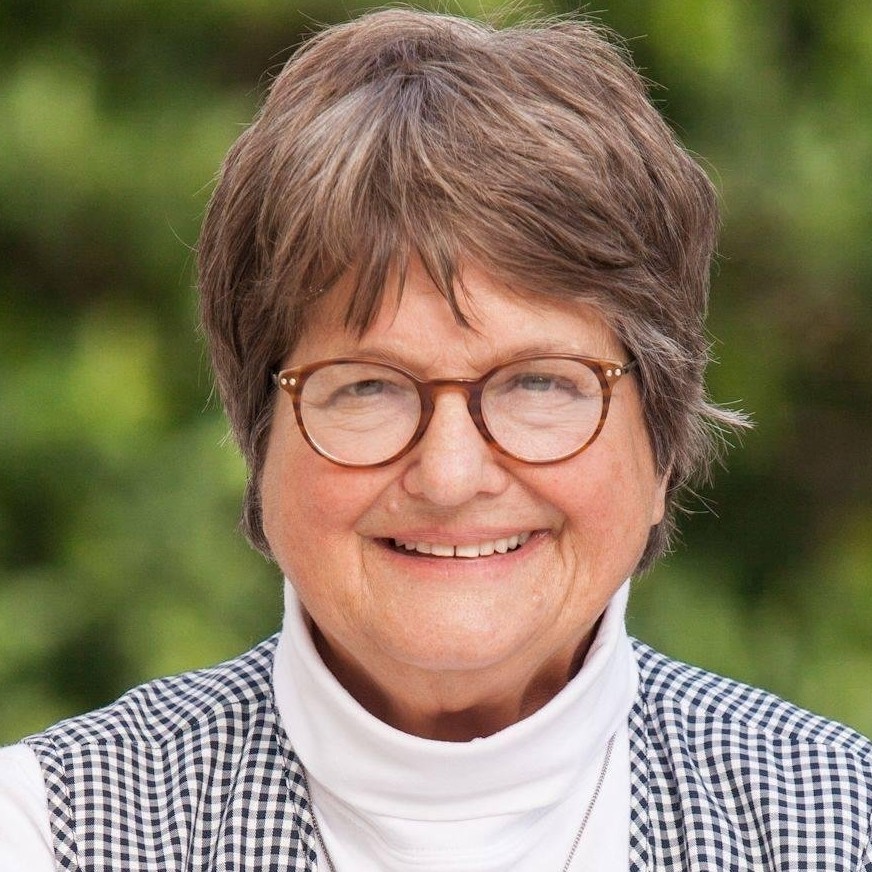 Helen Prejean, a Roman Catholic nun and a member of the Congregation of St. Joseph, is known around the world for her tireless work against the death penalty. Her best-selling book, Dead Man Walking, based on her experience as the spiritual advisor to death row inmates, was number one on the New York Times Best Seller List for 31 weeks, has been translated into 10 languages, and was the basis of the Oscar-nominated 1996 film and an acclaimed opera of the same name. Sister Helen’s second book, The Death of Innocents, examines how flaws in the death penalty system inevitably lead to innocent people being executed. Sister Helen is a member of Amnesty International, an honorary member of Murder Victim Families for Reconciliation and the honorary chairperson of Moratorium Campaign, a group that gathers signatures for a world-wide moratorium on the death penalty. She is the public face of the Ministry Against the Death Penalty and continues to counsel inmates on death row and families of murder victims.
Helen Prejean, a Roman Catholic nun and a member of the Congregation of St. Joseph, is known around the world for her tireless work against the death penalty. Her best-selling book, Dead Man Walking, based on her experience as the spiritual advisor to death row inmates, was number one on the New York Times Best Seller List for 31 weeks, has been translated into 10 languages, and was the basis of the Oscar-nominated 1996 film and an acclaimed opera of the same name. Sister Helen’s second book, The Death of Innocents, examines how flaws in the death penalty system inevitably lead to innocent people being executed. Sister Helen is a member of Amnesty International, an honorary member of Murder Victim Families for Reconciliation and the honorary chairperson of Moratorium Campaign, a group that gathers signatures for a world-wide moratorium on the death penalty. She is the public face of the Ministry Against the Death Penalty and continues to counsel inmates on death row and families of murder victims.
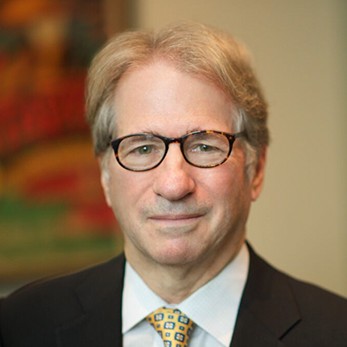 Barry C. Scheck is Professor of Law and Emeritus Director of Clinical Education at the Benjamin N. Cardozo School of Law. Scheck and his colleague Peter Neufeld co-founded and co-direct the Innocence Project, and pioneered the use of DNA evidence to exonerate the wrongly convicted. Scheck is a partner in the law firm Neufeld, Scheck & Brustin, LLP, specializing in civil rights and constitutional litigation. His many publications include Actual Innocence: When Justice Goes Wrong And How To Make It Right, with Peter Neufeld and Jim Dwyer. His extensive record of public service includes the presidency of the National Association of Criminal Defense Lawyers (2004-2005), and service on New York State's Forensic Science Review Board, the National Institute of Justice's Commission on the Future of DNA Evidence, and the American Judicature Society's National Commission on Forensic Science and Public Policy.
Barry C. Scheck is Professor of Law and Emeritus Director of Clinical Education at the Benjamin N. Cardozo School of Law. Scheck and his colleague Peter Neufeld co-founded and co-direct the Innocence Project, and pioneered the use of DNA evidence to exonerate the wrongly convicted. Scheck is a partner in the law firm Neufeld, Scheck & Brustin, LLP, specializing in civil rights and constitutional litigation. His many publications include Actual Innocence: When Justice Goes Wrong And How To Make It Right, with Peter Neufeld and Jim Dwyer. His extensive record of public service includes the presidency of the National Association of Criminal Defense Lawyers (2004-2005), and service on New York State's Forensic Science Review Board, the National Institute of Justice's Commission on the Future of DNA Evidence, and the American Judicature Society's National Commission on Forensic Science and Public Policy.
 Rob Warden is the co-founder of the Registry, as well as executive director emeritus and co-founder of the Center on Wrongful Convictions at Northwestern University School of Law. His investigations into wrongful convictions in Illinois capital cases in the 1980s set a movement in motion that culminated in the abolition of the state's death penalty on March 9, 2011. Mr. Warden is the author or co-author of hundreds of articles and seven books, including four focusing on wrongful convictions. He currently is working on a book on the execution of likely innocent defendants. Mr. Warden has won more than fifty journalism awards. In 2011, he was one of three local recipients of the first annual Chicago Ideas Week Hero Award. In 2014, he was honored by the Innocence Network, of which he was a founding board member, with its first-ever Lifetime Achievement Award for "innumerable contributions... to educating the public about the prevalence of wrongful convictions and other injustices and his passionate personal commitment to exonerating scores of individuals."
Rob Warden is the co-founder of the Registry, as well as executive director emeritus and co-founder of the Center on Wrongful Convictions at Northwestern University School of Law. His investigations into wrongful convictions in Illinois capital cases in the 1980s set a movement in motion that culminated in the abolition of the state's death penalty on March 9, 2011. Mr. Warden is the author or co-author of hundreds of articles and seven books, including four focusing on wrongful convictions. He currently is working on a book on the execution of likely innocent defendants. Mr. Warden has won more than fifty journalism awards. In 2011, he was one of three local recipients of the first annual Chicago Ideas Week Hero Award. In 2014, he was honored by the Innocence Network, of which he was a founding board member, with its first-ever Lifetime Achievement Award for "innumerable contributions... to educating the public about the prevalence of wrongful convictions and other injustices and his passionate personal commitment to exonerating scores of individuals."